Guide
Effective Health Benefits of Shatavari

Shatavari is an effective herb that has been since ancient times in Ayurveda to treat various diseases. It is particularly used to support the reproductive system for females and supports the digestive system, especially in excess of pitta.
It is an adaptogenic herb that helps to cope with your body with physical and mental stress. The scientific name of Shatavari is Asparagus racemosus, and it belongs to the asparagus family.
It is also known as satavar, satavari and it has several meanings. It is translated as “having one hundred roots” and also referred to as “having one hundred husbands.”
Shatavari is used as a rejuvenating tonic for the female reproductive system in Ayurveda. It is not only for young women but also suitable for the middle and older-aged women. All age groups of men have benefits of its cooling properties.
About Shatavari
Shatavari is a female-friendly herb that is obtained from the root of the plant. The native of Shatavari is Africa, Australia, India, China, and several parts of Asia. Basically, it is a woody, branched, spinous climbing shrub that grows up to 1-2 m tall. This plant grows in well-drained and fertile clay-loamy, and also in rocky, gravelly soils.
You can find these plants in forest borders, moist areas, hilly slopes, fallow lands, shady places, and coastal plains. The plant produces bell-shaped, odor, racemose white flowers with pink color that usually blossoms from June to July.
It contains three-lobed berries that are initially green in color and, after they ripe, turn into blackish-purple color. The fruits have a very bitter taste, and they contain brittle black seeds.
According to the meaning of the name, it has hundreds of roots that are tuberous, succulent, and spindle-shaped. The leaves of this plant are pine-needle shaped, and it has a shiny green color.
The stem of the plant is woody, and it is sparsely covered with curved spines. The hundreds of roots contain many effective medicinal properties. It has light color on the outside and milky white color inside, and it has longitudinal wrinkles surfaces.
Ayurvedic Synonyms of Shatavari
The holistic science of Ayurveda refers the plant by several names such as Satamuli, Shatapadi, Satavirya, Dveepika, Indavari, Narayani, Vari, Sukshmapatra, Bahusuta, Atirasa, Peevari, Dveepishatru, Rushyaprokta, Atirasa and Urdhvakantaka.
Common Names of Shatavari (Thannirvittan):
Botanical Name: Asparagus Racemosus
Tamil Name: தண்ணீர்விட்டான் / Thannirvittan
Malayalam Name: ശതാവരി / Sathavari
Telugu Name: అబీరువు / Abiruvu
Kannada Name: ಹಲವು ಮಕ್ಕಳ ತಾಯಿ ಬೇರು / Halavu makkala taayi beru
Hindi Name: शतमूली / Shatamuli
Marathi Name: शतमूली / Shatamuli
Bengali Name: শতমূলী / Satamuli
Sanskrit Name: शतमूली / Satamul
Health Benefits of Shatavari (Thanneervittan Kilangu)
Shatavari is the most popular supplement that helps you to treat a wide range of symptoms, and it can be taken orally as a powder, tablet, or liquid. The recent medical research and study state that the root of Shatavari contains many powerful medicinal properties and health benefits.
But more studies and research should prove that to use this herb for treating all conditions. According to the suggestion of the research and study, the following are the health benefits of Shatavari.
Female Reproductive System
Shatavari is popularly known as a powerful female-friendly herb that helps to treat lots of hormonal problems. It not only helps to treat endometriosis but also maintains the level of hormones in the blood and balances your hormones.
Shatavari makes your female reproductive organs stronger and improves the maturation of eggs into follicles. Shatavari is an effective uterine tonic so consuming this medicine or food regularly enhances fertility, and can help in promoting conceive.
Male Reproductive System
Shatavari is mainly used for the female reproductive system, but it also helps to improve men’s health. The root of Shatavari powder contains powerful spermatogenic properties that are very useful for treating hypothermia, asthenozoospermia, teratospermia, oligospermia, and it improves spermatogenesis.
It is a natural antioxidant, so it enhances male hormones production like luteinizing and testosterone hormone. It also used to treat premature ejaculation and erectile dysfunction.
Hormone Regulation
Shatavari is very popular for the influence of the adrenal glands. Phytoestrogenic is combined with bioactive components, so Shatavari is very important to maintain hormonal balance and fight against menstrual cramps.
It provides great relief from depression, hot flashes, mood swings, insomnia, sweating during the menstrual cycle. The particular amount of root powder helps to beat women PMS symptoms and helps to regulate hormones for women and stimulate to conceive.
Respiratory Troubles
Shatavari is used as an effective remedy for all kinds of respiratory diseases. It contains antibiotic, anti-inflammatory, and anti-asthmatic properties, the root powder of Shatavari provides a powerful treatment for a normal cough, cold, and flu diseases.
It loosens the rheum deposit in your nasal cavities and chest, so it makes it easy to breathe and helps your body to get relief from mucus.
It is very useful in treating asthma and bronchitis conditions. Daily consumption of this herb strengthens the lung tissues and increases the health of your lungs.
Pregnancy & Lactation
Galactagogue is a substance that increases the milk production during lactation. Shatavari is mainly used for this purpose. According to the research and study, the experts find that after the supplementation of Shatavari milk production increases.
Shatavari contains high importance while lactating that improves the secretion of milk from the mammary glands. It is very useful to the little ones because the breast milk is most powerful for their nourishment, and it strengthens your immune system.
To increase the libido, you can consume one teaspoon of Shatavari powder with milk at night. However, you should consider your doctor or other healthcare professionals before taking any herbal supplements during lactation.
Promotes Cardiac Functioning
Shatavari is a traditional Ayurvedic herb that contains positive effects for the heart. It is a natural antioxidant and cardio-protective herb that plays an important role in treating heart diseases. It makes your cardiac system relax and soothes your mind. It is an effective remedy for palpitations and arrhythmias patients.
It is also useful to control cholesterol levels in the blood, strengthens heart muscles, and prevents accumulation. Shatavari helps to reduce the risk of heart attacks, heart blocks, atherosclerosis, blood clots, etc.
Improves Digestion
Shatavari is used to treat digestive problems effectively. The root of Shatavari powder contains an anti-flatulent property that helps to reduce gas formulation in the alimentary canal.
It prevents bloating, flatulence, and abdominal distension. It increases appetite, decreases indigestion, and enhances better absorption of nutrients in the body.
The root powder contains a huge amount of fiber that makes it an effective remedy for constipation and other digestive problems. Take one teaspoon of root powder with warm water and add some honey with them. By drinking this, you can get great relief from indigestion.
Prevents Anxiety & Depression
According to the research, there are 16.1 million adults affected by depression yearly in America. But they can’t take the recommended depression medicine because of the negative side effects.
Depression can affect neurotransmitters in your brain, which transfers information throughout the brain. Shatavari has been used to treat depression in Ayurveda since ancient times.
Shatavari is very powerful to improve your mood, and it provides effective treatment for various psychotic disorders like dementia, depression, etc.
It maintains Vata and Pitta doshas in your body and helps to keep your serotonin level control. It also helps to cure the symptoms of anxiety such as restlessness, uneasiness, cold hands, and feet.
This herb includes anti-depression properties that help to reduce irritation, calming your mind, and enhances your energy and stamina.
Treats Diabetes
Diabetes is one type of kidney damage that leads to poor control of blood sugar levels and blood pressure. Shatavari contains a great hypoglycaemic property that plays an important role in reducing blood sugar levels in your body. Consuming Shatavari root powder increases insulin production from pancreatic β-cells.
It also helps to reduce the breakdown of starch to glucose, which leads to reduced blood sugar levels. Shatavari is also used to reduce cholesterol, blood sugar level, and oxidative stress.
Treats Wounds And Ulcers
Shatavari root powder includes effective anti-ulcer and anti-inflammatory properties that play an important role in treating all types of ulcers, such as mouth ulcer, peptic ulcer, canker sores, ulcerative colitis, etc.
The bioactive composites present in the plant supports regeneration of tissue, and the juice extracted from the leaves is used for dressing the wounds.
Ulcers are sores in your stomach, esophagus, or small intestine, and they can be very painful. It may cause certain serious problems like bleeding or perforation.
Treats Kidney Stones
The hard deposits that form in your kidney are called kidney stones. They can make excruciating pain when they pass through your urinary tract. The oxalates create most of the kidney stones. Oxalates are the compound that presents in some foods like beets, spinach, and french fries.
The extract from the Shatavari root can help to prevent forming oxalates stone in the kidney. It also increases the concentration of magnesium in urine. The perfect level of magnesium in your body helps to control and prevent the crystal development in the urine that forms kidney stones.
Improves immune system
Shatavari has been used in Ayurveda to improve your immune system since ancient times. In 2004 there was a study conducted to use the extract of Shatavari root to increase the antibodies in animals. The treated animals got complete relief quickly and better health. Thus, Shatavari is used as an effective immune booster.
Effect On Doshas
Shatavari is a queen of herbs that can be sanctified with Guru, Tikta Rasa, Madhura, and Snigdha Guna. It naturally represents Madhura Vipaka and Shita Virya.
It is very heavy and oily, so it relieves Pitta and Vata doshas. It contains a cooling capacity and sweet metabolic taste that may intensify the Kapha doshas. Due to the important properties and doshas, the Shatavari herb contains positive effects on several Dhatus, such as Rakta, Rasa, and Shukra.
The Ayurvedic properties of Shatavari help to represent the following potent prabhabs on your body that are Kshayapaha, Pittasrahara, Tridoshahara, Stanyada, Kshataksheenahara, and Shukrala.
Other health benefits
- Constipation
- Bronchitis
- Diarrhea
- Relieves cough
- Heartburn
- Alcohol withdrawal
- Promotes energy level
- Pain relief
- Maintain blood sugar level
Side Effects
The Shatavari herb is very effective and beneficial for treating many health disorders, but it is important to consume a certain quantity. Excess of quantity may lead to some severe problems. People who have allergic problems should avoid consuming the Shatavari herb.
These allergy problems may cause itchy skin & eyes, rashes, fast heart rate, dizziness, and worst asthma symptoms. Shatavari herb may contain diuretic effects, so you should avoid diuretic herbs or drugs like furosemide. It can reduce blood sugar levels, so you should avoid taking this with other drugs or herbs that reduce blood sugar.
Shatavari Dosage
The dosage of Shatavari can vary from person to person depending on the age, effects on appetite, severity, body strength, and condition of the patient.
It is recommended to consider your doctor or Ayurvedic practitioners according to the condition of patients and medicines. They can recommend the dosage for effective treatment.
Shatavari is available in tablet, powder, and liquid forms. The common dose of Shatavari tablet is 500 milligrams twice a day. The common dose of Shatavari extract is 30 drops in juice or water thrice a day.
- Take 1/4 or 1/2 teaspoon of powder with warm water, milk or juice twice a day
- Take 1-2 teaspoons of Arishta or Aqueous Tincture twice a day.
- Take 1-2 vati or capsules twice daily.
- Take 2-3 teaspoon of kashayam once a day.
Shatavari is the queen of herbs that contains many Ayurvedic benefits to treat many diseases. It is an effective remedy, and it contains lots of health benefits.



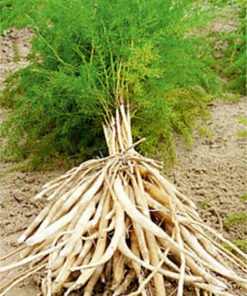


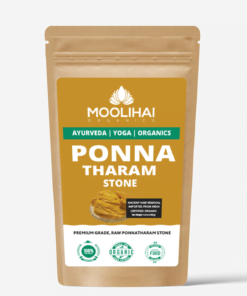

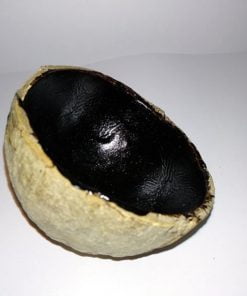






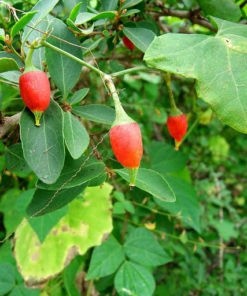


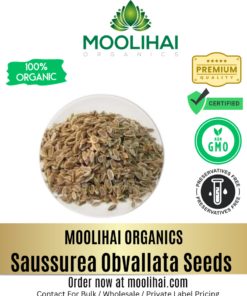




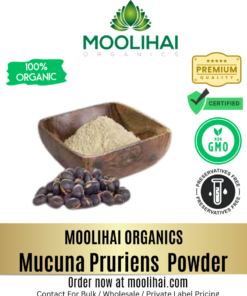

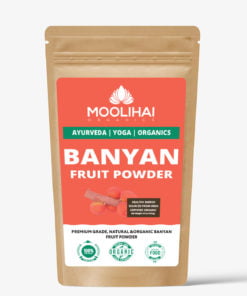

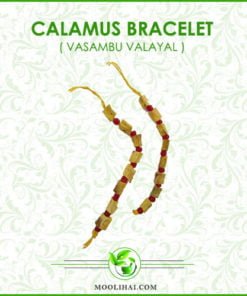

You completed several nice points there. I did a search on the issue and found the majority of people will agree with your blog.